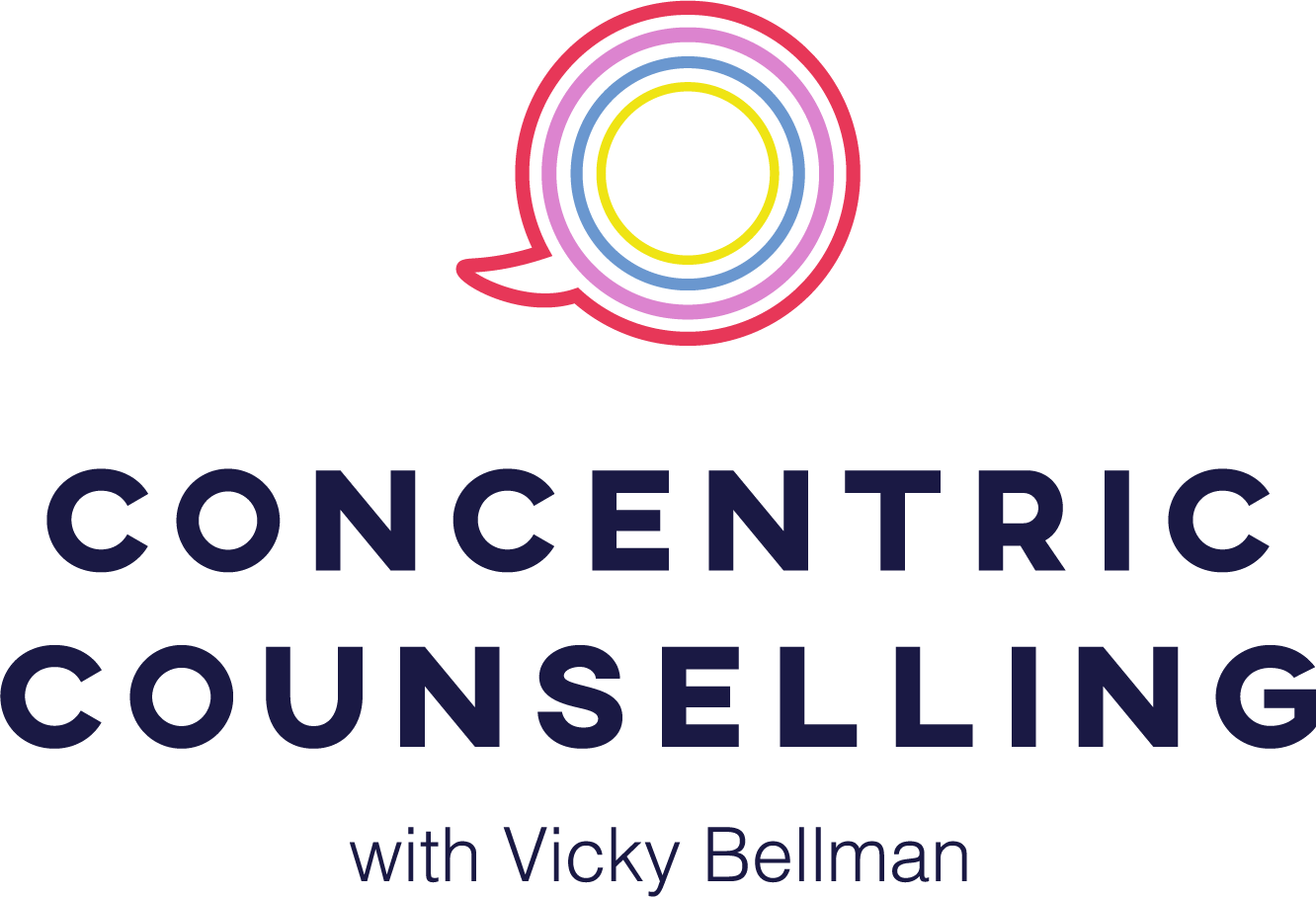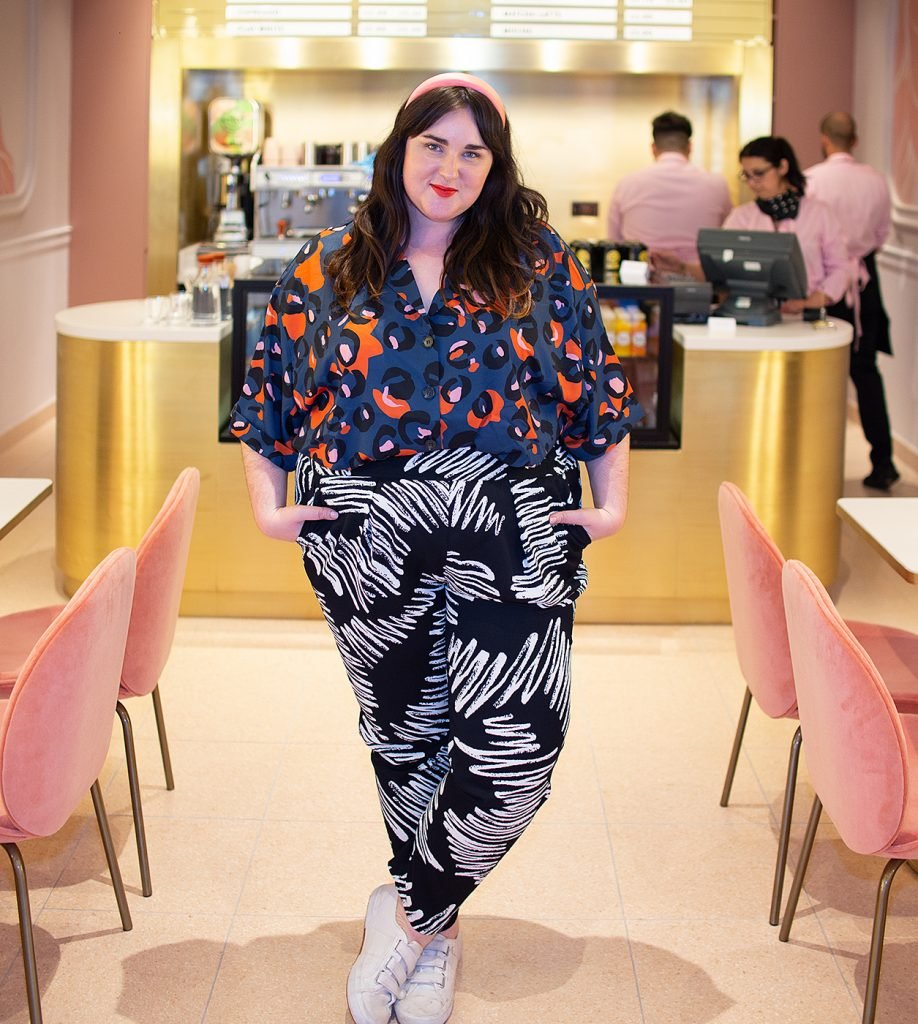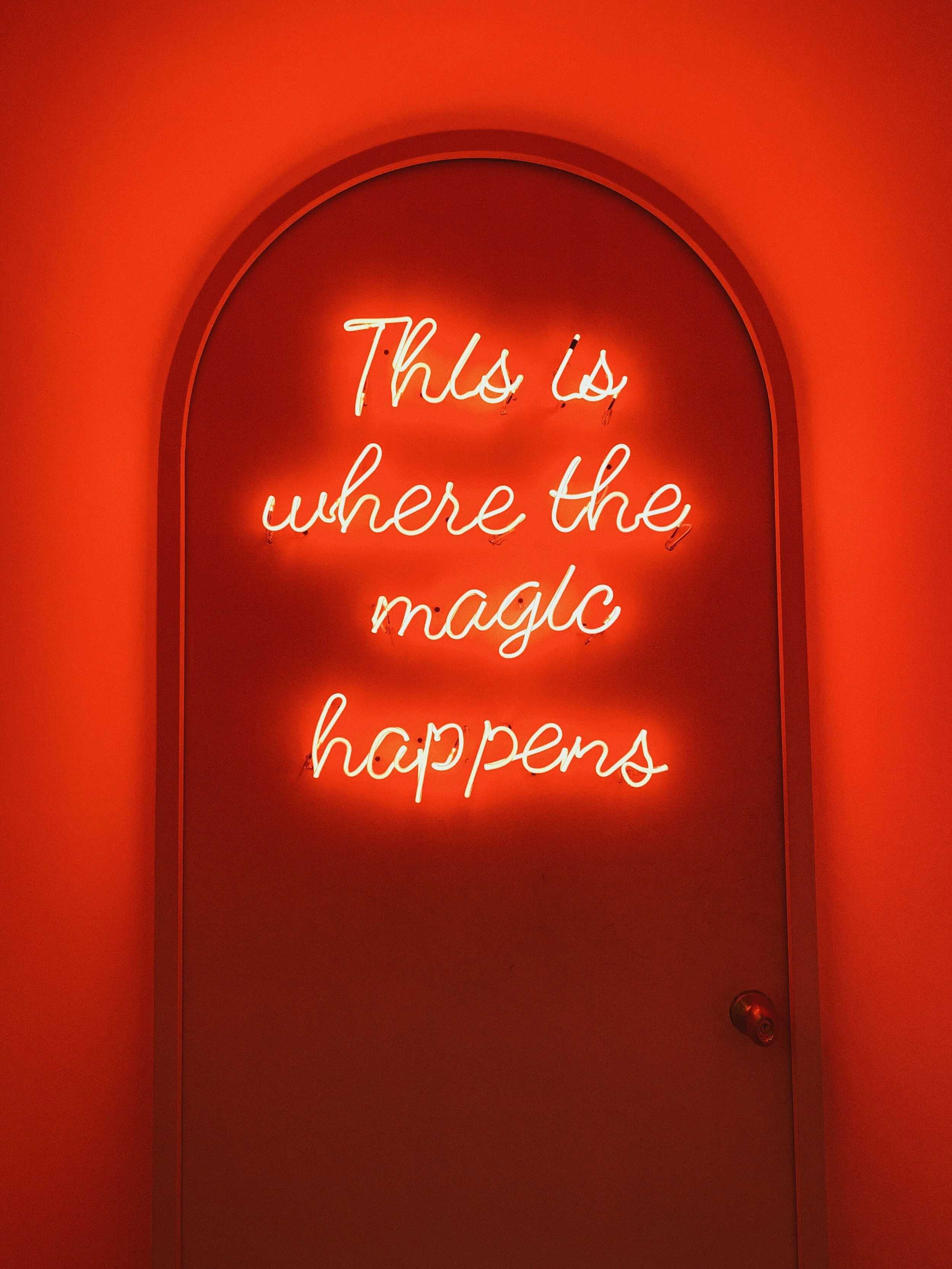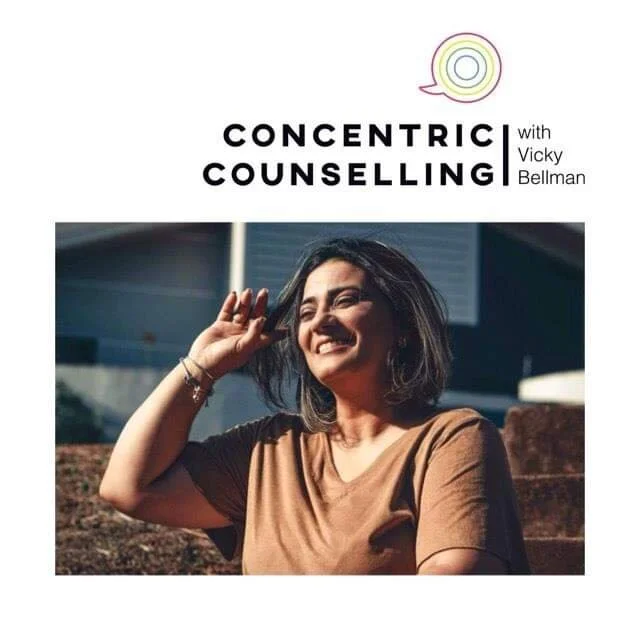Fat Bubble: Bethany Rutter
If you’ve been signed up to my newsletter, Fat Bubble, for a while, you’ll have heard me mention Bethany a few times – she was one of the earliest fat influencers I found, when influencers were first emerging! Her blog, and then her books, have been a real joy to me, and I think they are such a vital contribution.
So, this is a little gift to you, something a little bit different – it's an ‘in conversation’ piece, with long-time internet connection and now real life meet up and pal, Bethany Rutter! We met up in London (in Chinatown, for delicious noodles and lamb skewers at Food House), to chat about her work and the fat fashion community, and who Bethany has in her own bubble...
Vicky – So, the newsletter is called Fat Bubble and you know the concept - I found I was talking about the concept of a fat bubble to so many of my clients. And, at the same time, I was thinking... I really want to be in regular contact with my mailing list but I didn’t just want to waste people’s time with more fluff, and then I realised I could talk forever about fatness and fat representation, and make it joyful. You know, really take it beyond fat acceptance to fat joy, fat affirmation, fat wonderfulness. And so that’s what the newsletter is about.
And your books are in my client’s Fat Bubbles. They’re really important for them to read. The convo will either be started by client’s asking ‘do you know about these books’ and I will happily say, ‘well, yes...!’. Or it will be started by me to say, ‘did you ever get to read [books with positive fat rep] as a teenager? No, then do you think your inner teen might need to go back and reclaim some of the healing of being seen with respect and good intention?’
Bethany - Yea, yea, When I started writing my first book No Big Deal I thought, if I only write one book in my life, what’s the one story I would most love to tell...
V - ...I love that...
B – And the two areas of my life where my body was really made into a problem was romance and fashion. So, for me, that story is around stuff around bodies and the value of yourself as a teenage girl, and when you feel as a teenage girl that stuff isn’t available to you because of your body, and the things that you are willing to compromise on in order to experience romance. Which is not always a good thing. You know, I feel like I do use a lot of my work, for better or worse, to re-tread my own experiences. And having made those compromises back then was not a good way to set myself up for the next few years. I do feel really lucky that I got a handle on/came to terms with my fatness at a relatively young age in relation to a lot of other people. But it’s still hard going through those relationship experiences and knowing, even at the time, that you’re more likely to cling to bad stuff because you’re fat. And I really thought I could tell that story.
V – Absolutely. That’s such a valid point, and that’s one of the things I love about the first book. It was really special to see a character embody what we hadn’t seen. A fat central character, who didn’t have a problem with their own body. Like, other people might, but not them.
B – Yea, and that was important to me... for me, I never looked at my body and didn’t like it, but I didn’t like the way I was experiencing the world and the way the world was experiencing me, and that was a really hard position to be in because I can’t change the way the world experiences me. I could lose weight, but that wouldn’t have actually changed the stuff I hated – the way the world treats fat people. So I guess because I didn’t want to lose weight it then becomes about trying to find community, and spending more time around people that don’t think about you that way and don’t look at you like that.
V – So tell me then... do you remember your earliest first fat positive people that you saw when you were young?
B - I feel like the first person that I felt was interesting to me was Beth Ditto. I’ve written about this before, but at the time – for me as a teenager - she was too much. She was interesting to me but I couldn’t relate to her at all because I was so not there. So the idea of being compared to her would have been challenging, because it denoted something I wasn’t yet at peace with.
V - It was exposing, yea?
B – Yea, absolutely that.
V - I remember the thing I found really challenging about her, and I wrote about this in a previous Fat Bubble, was that she would sweat on stage. And I was like, ‘oh no, don’t show people that we sweat!!’.
B – Exactly! It wasn’t just that she was fat, but that she was fat and not elegant, and not composed. Because I do feel like a lot of the ways into fatness for women are through more acceptable channels like vintage pin up, very composed images. So to be confronted by someone that was very obviously fat... because you know, I feel like there are a lot of people where I think, are they actually fat or do I just think they’re fat because they’re not as thin as everyone else. And she was someone who was unambiguously fat. And sweaty and messy, and for me that was [makes squeamish sound]. You know, I felt glad that someone was doing it, but our brains were not ready. I was too young to have made the necessary progress, that I’ve since made, to get her. So she was the first person I saw, but it took me a few years to really understand what to do with her, and how important she was.
V - [lots of agreeing noises]
B – But then, in terms of influencers, it was Nicolette Mason, and Gabi Fresh and I was just like, wow... these people have their own style and they look cool and that’s something that’s accessible to me. And that was amazing for me because it was the first time I thought, it’s not just that they look good ‘for fat girls’, they just looked really really cool. Those are my people.
V – you.. Callie Thorpe, Dani Vanier, you three were the people that I first found, and then Stephanie Yeboah. And you four were some of my OGs. Even though you were younger than me you were doing stuff, out loud in public, that already lived in me, but that I just hadn’t found out in the world. I just hadn’t seen it until I found your blog.
B – I really love them all, because they have such a real humanness and vulnerability, and I think that’s why so many people respond to them. Because it is hard being fat! It’s hard. It’s joyful but it’s hard because the world is so fatphobic. And I think your ‘everywoman’, whoever that is, really responds to them all. Like Callie, for example, is really honest about that being a battle, because why wouldn’t it be. And I try and not be absolutist in how I look at fat people who want to lose weight, for exactly that reason – because it’s hard. I get it. I know how hard it is to preserve yourself.
V – I completely agree. I say that to anyone who will listen! I spoke about this in my Fat Bubble about Virgie Tovar, because I so appreciated when she said ‘I don’t blame anyone for wanting to feel less oppressed’; it gave me the cornerstone phrase to meet anyone struggling with that stuff because, of course you do.
B – Yes, exactly. And that doesn’t mean it isn’t difficult to see – it really is, when it’s someone you’ve followed for years, for example.
V – Agreed. And I think one of those reasons is because [fat public figures] are still scarce. I think if you had, like, 50 fat public role models, like we see with slim bodies, if you ‘lost’ one to weight loss, you’d still have 49! But if you really have Lizzo and Rebel Wilson, and you lose Rebel.. And Adele... that’s a big hit.
B – Agreed. I think it’s really fine to have a response to that loss - I really think it’s ok to have an emotional response to that loss that doesn’t necessarily come from your best place, because that’s human, that’s grief. It's ok to have emotional responses but then to process through them, and I get where it’s coming from, and I get that it feels personal because it feels like a personal rejection of me, but... yea, why wouldn’t someone want to experience the world in a more comfortable way.
V – Absolutely. So tell me, now, who is in your Fat Bubble now, when you look for a top up? Even when we’re solid in who we are, who are the voices you love?
B – Ah, so I choose Katie Zornes, who I follow on Instagram, who just ran a half marathon. And I just found her so inspiring, because she’s an actually fat woman documenting the reality of taking on this huge task.
V – I love that! I’m so glad to acknowledge your body movement joy at the moment, because it’s such a delightful part of your life right now! I think, even when you’re fully in acceptance and fat joy, it’s not even necessarily a need anymore, but it’s just a want to see your identity reflected back to you in the world... so I feel like Fat Bubble takes on a different resonance when you’re deep in having a benevolent relationship with your body. You just want to see yourself mirrored. And that’s what Fat Bubble is. What has been lovely is that, by collating this archive, we see how many Fat Heroes we’ve actually got. And that we have such a range. Because we think we don’t have many but, actually, this is a reminder that we have many many many!
B – Absolutely, and that’s just a very human need.
V - Let’s talk about fat representation in fashion because... my clients, sometimes they will want to ask me where some of my clothes are from, they want to talk about influencers they’ve seen on Instagram, they want to talk about brands with inclusive sizing. And they want to express themselves and also reclaim some of their previous experiences of being marginalised and forgotten about by fashion, and that’s such a vital healing aspect in sessions. And sometimes they say, is this a valid thing to be talking about in sessions? And I say, absolutely! We could talk about clothes for hours and for it to be therapeutic, because it’s part of how you meet the world.
B – Oh completely. That’s why the first scene of my first ever book is about not being able to shop for clothes whilst your friends are shopping for clothes. It just feels like such a relatable moment.
V – It absolutely is a relatable moment. And that links back to you saying earlier that the two ways your body was made a problem was in clothes and romance. And those are the two areas that you have made your work.
B – Absolutely. And that’s what I find so interesting. Because dealing as an adult with things that I did not feel equipped to deal with as a younger person, or didn’t have the option of dealing with, or just didn’t know how to deal with...
V – ...didn't see it being dealt with...
B – Yes, absolutely. Also, when you are fat it’s also been a way in which... especially if you are working with people in their 30s plus... their memories of their formative years, when their identity should have been being formed, and partially through clothes, but that was denied to them because of size exclusion. And so it’s things you’re coming to later in an era where there are more options – not being able to figure out who you are and how you want to dress and seemingly frivolous things like sub-cultures that were not an option for you – like, would you have been a goth...
V - ...no, because we were all dressed in business casual at fourteen years old!
[both laugh]
B – So I feel like, for all that fashion seems a frivolous thing to be spending precious therapy time talking about, it is very integral to your sense of self.
V- And it’s also an experience of someone saying, ‘hey I was left out of something’. Whether that’s a group or whether that’s from fashion or on the playground or at work; like, if you’re left out of something, that’s going to hurt.
B – And also because you’re probably not experiencing those things in a vacuum. Those are things you will have experienced around, like, your friends in Topshop or shopping with your mum and having to deal with knowing that your mum is unhappy with you being bigger than your friends etc etc – it's never just about clothes. Clothes as identity, clothes as relationship...
V – Clothes as relationship, exactly. The feeling of going to the shopping centre and being able to try things on.. Which I didn’t get... I don't think you got. Having to pretend to be interested in the handbag section. Not the shoe section of course...
B - … because you might need wide fit!
V – And now we see it being dealt with and actually acknowledged, and it’s so grassroots – it was blogs, back in the day, it’s IG, it’s Tik Tok. But also... I’m thinking of your coffee table book!
B – Yes! My first baby! So I edited that rather than being an author. That was really interesting. What was interesting about that is that I tried to have a 50/50 split between white influencers and non-white influencers and that was actually not hard. There was what was so exciting to me in the world of fat fashion. Yes, a lot of the faces that become the most popular or elevated are white, but there were so many interesting people around the world, within the fat community, that were doing really interesting stuff. And because I had so many pages they didn’t have to have huge follower counts, it was really just like... are they doing something cool or interesting or something that I’m excited by. It was so nice. I wanted the book to be for as many people as possible.
And it makes it more fun, more interesting. And a lot of the people I featured were people I knew, and wanted to shine a spotlight on, but there were also people that I’d never seen before, so it was a really cool voyage of self discovery.
V – That's so so great. And it’s so elevated and those images say, I belong here. We have a place in fashion, this is editorial, this is chic.
B – Absolutely. I'm a real believer in... people believe what you tell them. So if you enter situations and you’re confident and on top of stuff, that’s how you’ll be received.
V – Absolutely. And that’s 100% the vibe I get from your characters. So isn’t that great that if you very much believe that, that it’s also visibly running through your books.
B – Yes, it’s kind of like ‘fake it ‘til you make it’ but it’s so much more than that.
V – And I can really see that with your characters – was that intentional? Or maybe it’s just one of your personal values that weaves through?
B – Yea, and it’s obvious that a lot of my work is autobiographical, and I guess if that’s something that I’ve found useful in my life it’s obviously something I'd want to pass on to readers that might not have thought of it.
V – Is that your little Fat Bubble contribution?
B – Yes, people believe what you tell them, so you’ve got to be careful what you tell people.
V – I feel quite emotional actually, to think of the positive connections that people can make to their fat bodies now, the reframe that can be created. And maybe not even a reframe. Maybe, maybe there are kids out there that won’t need to reframe.
B – yes, that is SUCH an exciting thought. That we just keep going, and building more and more. It feels like a good time.
V - It's a good time to be fat.
B - A very good time to be fat!
This piece was first made available to the Fat Bubble newsletter subscribers - you can sign up to the mailing list to receive these emails by scrolling down and inputting your details at the bottom of the page.












